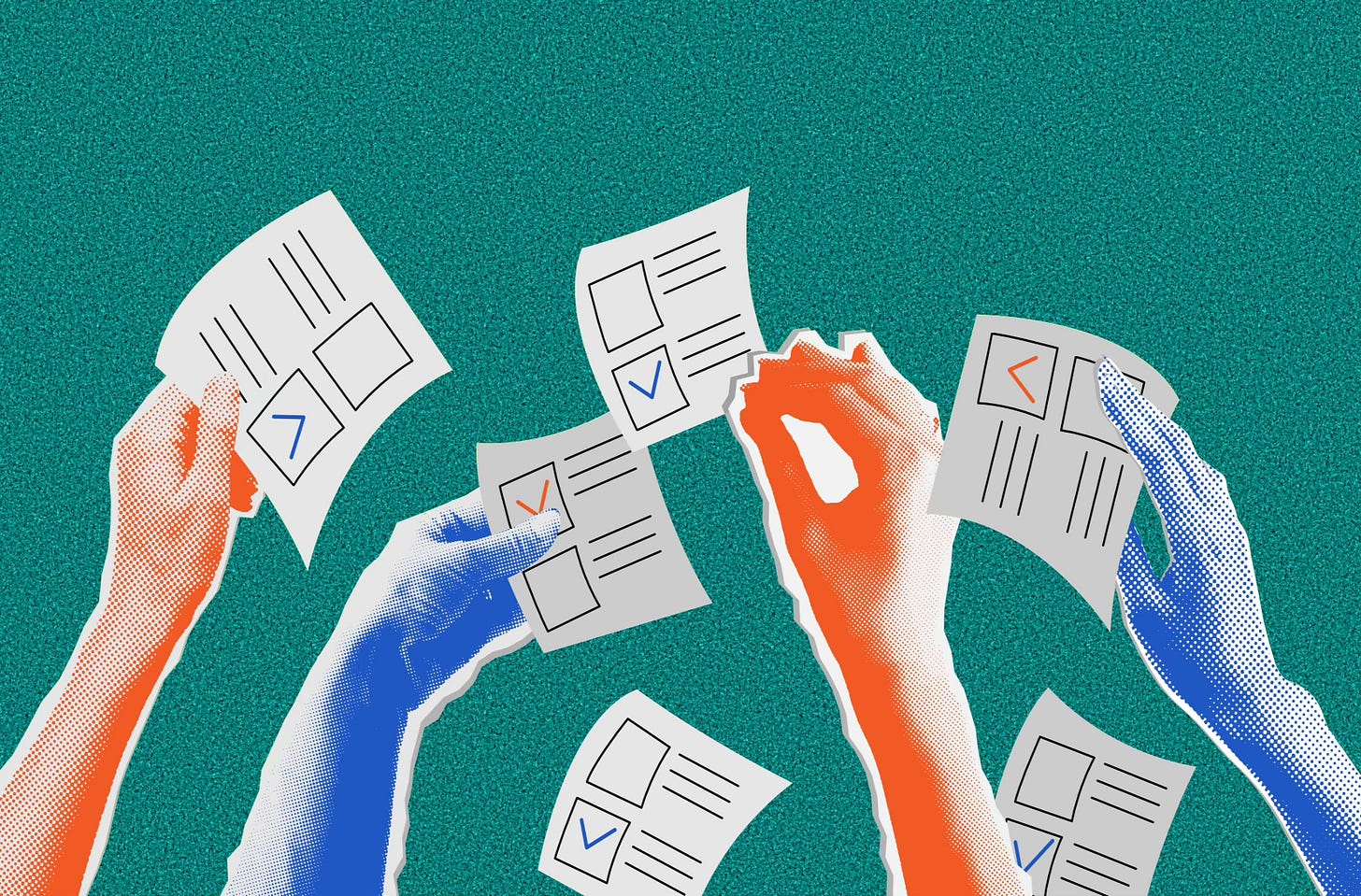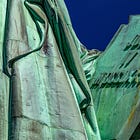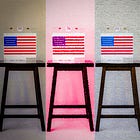America’s Glorious Tradition of Voting
It’s entwined in our history
Across the country, millions of Americans have taken a moment out of their day to sit down with a piece of snail-mail paperwork, or will soon drive to a local elementary school, senior center, or municipal building. Some will take time off work. Others will bring their small, unruly children to observe the act of marking a sheet of paper. They will do this despite knowing that the chances are astronomically close to zero that their action will make any difference.
So why do they do it?
I distinctly remember being one of those children, brought by my parents to the same school I attended every day to watch them cast two votes in the 1996 election, a widely expected landslide. What was the point? Why was it something they wanted to impress on me as an act I’d one day do myself, with a seriousness almost on par with going to church? The strangeness of it may be why it stuck with me more than the churchgoing.
Sentimentalities of early childhood aside, it is a strange thing to reflect upon. Today, I can point to specific language from one of my suggestions in the federal law defining when “election day” is. I’ve been quoted in the national media and on the floors of Congress on matters of election law. I’ve been lucky enough to work at respected institutions with colleagues far smarter and more accomplished than myself. I have the privilege of writing for publications such as this one. I have worked on campaigns, some successful, and been myself a candidate, decidedly unsuccessfully. Some of those campaigns came nowhere close to victory and yet might have changed the result.
I have, in small ways to be sure, had a role in decisions which had a less-than-trivial chance of affecting who would be the most powerful person in the world. The remote but undeniable risk that something I did could have tipped the balance, and the immense consequences of that, is not a thought I enjoy. The lives affected. The lives lost. There’s a lot at stake, and anyone who works on these issues would do well never to forget it.
Having had somewhat more influence than an individual voter—even if that’s only on the modest level of one out of hundreds of thousands of comparable people, instead of one out of nearly two hundred million voters—is not particularly pleasant. Or maybe, probably much more likely, nothing I’ve done has come any closer to affecting the result of a national election than my parents did when they cast their two votes in a race Bill Clinton won by more than eight million. Is that better? I’m not sure. It would be a lot of work to come to naught.
So why do we do it? Why do I do it? Once again, bringing my husband along to cast ballots I know will have no real effect, in a state that isn’t even competitive. Where my ballot features a bevy of petty local offices I know little about, and will probably never think of again. An action I will take no more seriously than to put my “I voted” sticker on one of my pug dogs, as I do every couple of years, and post it as a joke on social media.
On the face of it, we’re all familiar with the usual explanations. We do it because it’s part of our identity as Americans, which we do care about, and act on in larger ways both positive and negative. We do it because we have been told it is, in some nebulous way, our civic responsibility. We do it because we identify with one team or another, the grubby vanity of our political parties. We do it because we care about the issues at stake, the laws and policies affected. We do it because it’s the right thing to do even if we can’t fully explain why it’s the rational thing to do.
One theory would be that the effects of government policy are so large that even as a rational economic opportunity cost calculation, a small chance of affecting the outcome is worth a few minutes of our time. Perhaps. But I don’t think anybody’s actually thinking about it in those terms. There’s something more fundamental going on here. We vote to say something. But what are we saying?
I have on my wall a collection of ballots from past elections—1804, 1832, 1864, 1888, 1924, 1948, 1972. And, for good measure, a prop ballot from Battlestar Galactica’s Roslin vs. Baltar contest. But the most meaningful are the two from 1864, one a “party ticket” ballot for Abraham Lincoln, and another used to vote for his Democratic opponent, George McClellan.
If elections are always somewhat odd affairs, then the election of 1864 was something truly extraordinary in human history. No other country would, and no other country ever has, held an election under such circumstances: the nation torn apart, the government’s authority in tatters, much of its territory in enemy hands. An ongoing war fought not overseas but within our own borders, at the cost of hundreds of thousands of lives. Even in a typical democracy, the normal thing to do would be to call it off and wait for better days. But not here. Not us. We are a nation not by blood and soil but by a shared creed, the timeless principles of the Declaration of Independence, however imperfect our efforts to realize them.
Like any conflict, the Civil War had a great many causes and people fought out of a wide range of motives. We remember, quite rightly, the central role of slavery and its abolition. But the more immediate trigger wasn’t any proposed law or step towards abolition. It was an election four years earlier, the election of 1860.
Abraham Lincoln, at the time a sincere opponent of slavery but with no plans for trying to abolish it, had won the election under the rules as they stood. He was, beyond a shadow of a doubt, the constitutionally legitimate president of the United States. His opponents had agreed to play by those rules and they had lost. Then, some chose not to accept that defeat, their solemn oaths to the Constitution notwithstanding. The alternative to an election was violence, and they chose violence, on a monstrous scale and for a heinous cause.
In the midst of a war being fought to uphold democracy itself, it would not do to cancel an election. Lincoln did not even entertain the thought, though he spent most of the year convinced he would lose, with catastrophic consequences. And so we voted, including hundreds of thousands of soldiers far from home, the first large-scale use of absentee voting.
Lincoln won the election and soon thereafter won the war. Some who still refused to accept that outcome then took his life. But today it is the memory of Lincoln we honor, not John Wilkes Booth. The great emancipator, not the notorious murderer.
But it is the ballot for George McClellan I am moved to ponder more than the one for Lincoln. He was the incompetent general, the Southern sympathizer, the vainglorious buffoon who inexplicably allowed Robert E. Lee to retreat and fight another day after a Union victory in the Battle of Antietam. Lincoln fired him, and McClellan then ran as the presidential candidate of a party which proposed to concede to the destruction of the Union, to give the rebels against democracy their victory, and to consign millions to slavery in perpetuity. It’s a good thing he lost, to put it mildly. And yet he did something of immense value, something worthy of respect: He gave the nation a choice. In our darkest hour, he offered himself up for possible rejection, and he accepted the result. The monumental significance of Lincoln’s reelection would be hollow if he had been unopposed.
This memento of McClellan’s mostly forgotten candidacy is not a mark of shame. It is a badge of honor. And so I keep it where it belongs, right next to Lincoln.
The election of 1864 wasn’t just an exercise in patriotism or wartime propaganda. It was, like all elections, an expression of our desire for peace—in the immediate sense of bringing the war to a just and successful conclusion, and the disagreements over what that meant. But peace in a more abstract sense as well, the absence of oppression and violence.
A society which oppresses is at war with itself, engaged in daily acts of violence against its own members. In the most extreme, this leaves the oppressed no recourse but to fight back, meeting force with force.
The expansion of the franchise has always been inseparable from ending oppression. The American Revolution, fought to reject being governed by a foreign power in which no Americans had a say. The antebellum abolition of property requirements, which had distorted governance in favor of the wealthy at the expense of the poor. The inclusion of former slaves and their descendants, fleetingly during Reconstruction and then more permanently a century later. Votes for women, which went hand in hand with freeing them from millennia of injustice. Citizenship for Native Americans, after centuries of exclusion and dehumanization. Eighteen to 21 year olds, with the end of the draft following close behind. Even today, with our near-universal franchise, the people whose rights are least respected by our government are still those who are unable to vote: felons and non-citizens.
The state is at its core the institution of violence, the monopoly on the use of force. It is odd that we limit this propensity by expanding the number of people who participate in it, who have a hand in directing it, but the arrangement works like no other can. It is undeniable that democracies have been more liberal, more prosperous, more rights-respecting than any of their autocratic alternatives. They are not immune from rebellions, coups, civil wars, chaos and disorder, blood in the streets, nor from committing massive injustices and abhorrent depravities. But they are vastly less prone to these things, and much more capable of correcting them.
When we include groups of people previously excluded from the democratic process, we are not just tinkering with political incentives, as important as those are. We are making a commitment to respect their full and equal membership in our society. We are acknowledging them as our equals, and receiving that same acknowledgement in return.
Elections serve to channel what would otherwise be violent social conflict into an orderly, regular, and peaceful process. They bring power under the rule of law. They lower the stakes, with the promise that there’s always next time, and even the victors will not have absolute power in the meantime. They take contests over conflicting visions and make them decided not by force of arms, but by slips of paper.
We vote because it is a social ritual of sorts, a statement we make to each other. The message is our commitment to live together in peace. It is an affirmation to our neighbors that for all our disagreements, all our vast differences in values and beliefs, we will not resort to killing each other. A nod of recognition that we’re all in the same boat, and would rather row together than throw people overboard. That, much more than any particulars of government policy, is why we do it.
At polling places and counting centers across the country, some go beyond merely voting and help make the whole machinery function, volunteering as poll workers and canvassers. Many are elderly. A disproportionate share are women. It might be a stereotype, but it is one reflecting the reality: many are grandmotherly. With a smile of encouragement, a genuine happiness to see us, they hand us a ballot, and then a simple sticker to show pride in what we have done. We respect them, but we do not always appreciate the deep meaning of what they are doing.
The people who make our elections happen are in a very real way peacemakers. And so are we, when we partake of what they are giving us. Freedom, security, justice … the recognition in each other of the innate worth of our shared humanity. The same sentiment can be expressed in more secular terms, but if you’re so inclined, it is the sense that we are all, without exception, created in the image of God. Created equal and endowed by our Creator with certain inalienable rights. That we ought not inflict harm on each other, despite the fact that we can. The promise of, as Lincoln put it, the better angels of our nature.
Blessed are the peacemakers, for they shall be called the children of God.
Maybe some of that church stuff stuck after all.
© The UnPopulist, 2024
Follow us on Bluesky, Threads, YouTube, TikTok, Facebook, Instagram, and X.
We welcome your reactions and replies. Please adhere to our comments policy.









My Dad was an atheist, but aside from the "endowed by God" part he would have agreed. He thought our ideals were the natural right of everyone to live freely, and he stood by this even though he often had to hide his beliefs due to the dangers of social and political isolation.
Our elections are fraudulent from one end to the other. Do something useful -- call for audits of every election at every level. Let's get back to paper ballots and honest counters. But you might lose in a fair fight, so you won't do that.